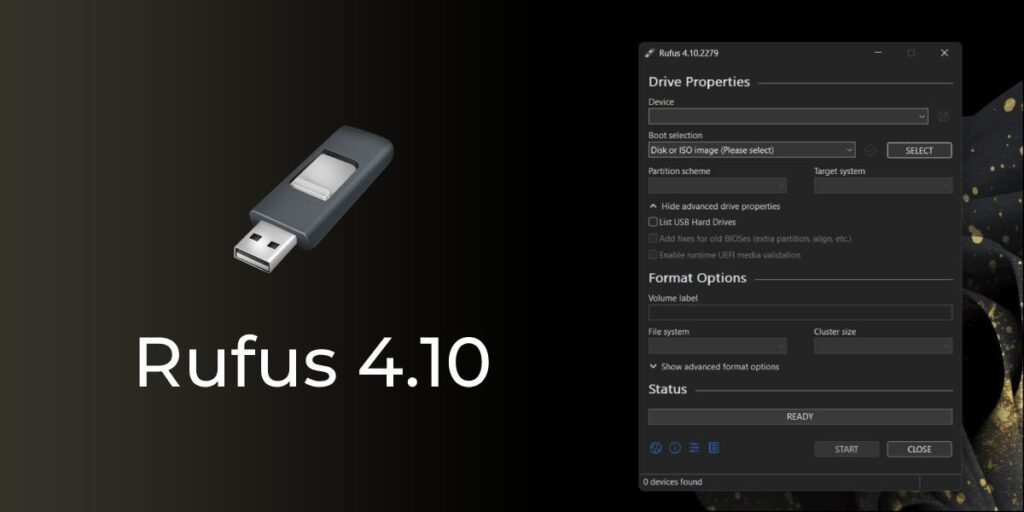Rufus, one of the most widely used tools for creating bootable USB drives, has released version 4.10, bringing useful new features and important fixes.
Below are the highlights of this update.
Windows UEFI CA 2023 support: the main addition
One of the standout changes is compatibility with Microsoft’s new UEFI CA 2023 certificate. This comes after the discovery of the BlackLotus vulnerability, a serious flaw that allowed attackers to bypass Secure Boot protections and load malicious code during system startup.
Although Microsoft has already patched the flaw, attackers could still exploit it by reinstalling older, vulnerable bootloaders. To prevent this, the company introduced a new signing certificate and revoked the old one.
The issue, however, was that most Windows installation images did not yet include this updated certificate—forcing administrators to go through cumbersome extra steps.
With Rufus 4.10 and the new Windows 11 25H2 ISOs, users can now create bootable USB drives that are fully compatible with systems where the BlackLotus vulnerability has already been mitigated.
Other new features: dark mode, ISO export, and fixes

Rufus 4.10 also introduces a dark theme, a long-requested addition for users who prefer a less glaring interface. Another practical feature now available is the option to export the entire content of a USB drive into an ISO (UDF) file, making it much easier to create backups of bootable media.
On top of that, several bugs have been addressed, including:
- Incorrect display of non-existent UEFI DBX updates in some cases.
- A problem that prevented file system selection in ISO mode.
- A crash occurred when handling Windows ISOs with overly long file paths.
With these enhancements, Rufus 4.10 not only improves security compliance but also streamlines the creation and management of bootable USB drives, making it an even more reliable tool for administrators and power users alike.











